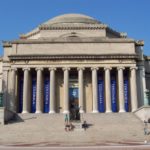10 Washington Scholarships to Save You Thousands on College
Topics Covered:
Washington state is home to some of the most well-known tech companies in the world, like Amazon and Microsoft. Helping to keep those innovative businesses fueled is Washington’s own Starbucks, the world’s largest coffee company. Also powering Washington industry are graduates from the state’s great colleges and universities, and the Evergreen State has a number of fantastic scholarships to support students pursuing higher education.
10 Washington Scholarships
1. Washington Indian Gaming Association (WIGA) Scholarship Program
Amount: $900 to $3,000
Deadline: March 31
Eligibility: Students enrolled in one of Washington’s 29 federally recognized tribes or American Indian/Alaska Native students enrolled in a federally recognized tribe and attending school in Washington
Application Requirements: Proof of tribal enrollment, transcript, essay, and two letters of recommendation
This excellent scholarship in Washington supports both members of the state’s 29 federally recognized tribes as well as American Indian/Alaskan Native students attending school in the state. Recipients can use the scholarship for two-year, four-year, and graduate programs. The award is renewable provided the recipient is continuing on their initial education path. However, those changing their level of study—for example, from pursuing an associate’s degree to a bachelor’s degree—will need to reapply.
2. Western Governors’ Association (WGA) Celebrate the West Contest
Amount: $200 to $1,500
Deadline: April 30
Eligibility: Students in grades 9-12 from one of the 17 states and three territories that participate in the WGA
Application Requirements: Original work of art
Although not specifically a Washington scholarship, the WGA Celebrate the West Contest encourages Washington high schoolers—along with students from 16 other states and three territories—to create an original work of art expressing what it means to call the West home. Artwork can include painting, drawing, lithography, silkscreen, mixed media, computer graphics, and collage, but photo and video submissions are not accepted. Numerous awards are available, with first-place taking home $1,500, second-place $750, and third-place $500. Additionally, state winners are awarded $200.
3. Washington Thoroughbred Foundation Scholarship
Amount: Up to $5,000
Deadline: May 1
Eligibility: Washington residents or students attending a Washington school with an annual household income of less than $75,000 pursuing a degree in an equine-related field
Application Requirements: Minimum 2.85 GPA, transcript, essay, two letters of recommendation, and FAFSA
This Washington scholarship supports low-income in-state students and students attending school in Washington to pursue their dreams of a career in equine-related fields, such as pre-veterinary medicine (equine practice only), equine science, racetrack management, equine business management, pasture management (as it pertains to horse farms), and equine racetrack marketing/communications.
4. Washington State Auto Dealers Association (WSADA) Bright Future Scholarship
Amount: $3,000
Deadline: April 15
Eligibility: Enrolling/enrolled in a qualifying Washington State automotive technology program
Application Requirements: Personal statement, letter of recommendation, and a member meeting
Washington students with an interest in an automotive career will want to explore this awesome scholarship provided by the WSADA. The association provides nine $3,000 scholarships: two awards for high school seniors enrolling in an automotive program, four for students already enrolled in one, and three awards for Washington state high school seniors who are employees of WSADA-member dealerships or immediate family members of a WSADA-member dealership employee. Applicants are required to visit a member dealership and meet with someone in their service department.
5. Washington State Baccalaureate Opportunity Scholarship
Amount: Up to $25,000
Deadline: March 2
Eligibility: Washington resident who is a high school senior or graduate with financial need planning to major in a STEM program at an eligible Washington state institution
Application Requirements: Minimum 2.75 GPA, transcript, two essays, and FAFSA
The intent of this Washington scholarship is to create pathways to high-demand STEM and healthcare industries and improve outcomes for students from low- and middle-income families—72% of scholars are students of color and 71% are first-generation college students. To qualify for this award, an applicant’s total family income must not exceed 125% of the state’s median family income based on family size. An applicant’s financial need, intended major, interest in STEM, and academic performance all factor into selecting recipients.
6. Pride Foundation Scholarships
Amount: Varies
Deadline: January 7
Eligibility: Resident of Alaska, Idaho, Montana, Oregon, or Washington and pursuing a post-secondary education
Application Requirements: Varies
The Pride Foundation Scholarships aren’t solely a Washington scholarship, but they’re certain to be of interest to LGBTQ+ students in the state. The Pride Foundation offers more than 60 scholarships, all of which are applied to by a single application, allowing them to distribute a broad range of awards to students from all backgrounds and interests. Since 1993, the Pride Foundation has awarded more than $7 million to more than 2,200 students.
7. Stimson Bullitt Civic Courage Scholarship Competition
Amount: $2,500 to $5,000
Deadline: March 15
Eligibility: High school seniors or undergraduates who reside, work, or attend school in Seattle, have a Seattle Public Library card, and are enrolling/enrolled in a post-secondary school that accepts Federal Student Aid
Application Requirements: Essay
The Stimson Bullitt Civic Courage Scholarship Competition is supported by the Seattle Public Library. Contestants are tasked with composing an essay that highlights an individual or group from Washington state who demonstrated civic courage on an issue important to the community at great personal, political, or professional risk. The essay should be between 1,500 and 2,000 words and cite at least three sources. The winner of the contest will receive a $5,000 award, and two runners-up will receive $2,500 awards.
8. American Quarter Horse Association (AQHA) Region One Quarter Horse Youth Scholarship
Amount: N/A
Deadline: January 15
Eligibility: High school seniors or undergraduates who are either AQHYA or AQHA members from Alaska, British Columbia, Idaho, Oregon, or Washington
Application Requirements: Minimum 2.5 GPA, transcript, and three letters of recommendation
This scholarship offered by the American Quarter Horse Foundation is available to students from Washington, as well as from Alaska, British Columbia, Idaho, and Oregon. Membership in the AQHA or AQHYA (the youth organization of the AQHA) is required of applicants. Recipients can use the AQHA Region One Quarter Horse Youth Scholarship for both two- or four-year degree programs.
9. Marsden Scholarship
Amount: Varies
Deadline: March 31
Eligibility: High school senior who resides within the Episcopal Diocese of Spokane (the state of Washington east of the Cascades and the state of Idaho north of the Salmon River)
Application Requirements: Transcript, SAT/ACT scores, college application essay, three letters of recommendation, and FAFSA
The Marsden Scholarship is provided by St. John’s Cathedral, however, there is no faith requirement for applicants. The intent of the scholarship is to ensure promising students from the Inland Northwest fulfill their potential at the colleges and universities of their dreams. Applicants are evaluated by a variety of factors, including their academic performance, demonstrated leadership, and the potential impact of the scholarship on achieving their academic goals.
10. Grieg Lodge Scholarship Foundation (GLSF) Educational Scholarship
Amount: $2,000
Deadline: February 17
Eligibility: Resident of Clark County in Washington state or Multnomah, Clackamas, Columbia, Washington, and Yamhill Counties in Oregon
Application Requirements: Transcript, essay, and two letters of recommendation
Grieg Lodge is the Portland chapter of International Sons of Norway and their scholarship fund is intended to encourage studies of the cultures of Norway and the United States. Affiliation with the Grieg Lodge isn’t required of applicants, however, applicants with a connection to
Nordic (Danish, Finnish, Icelandic, Norwegian, Swedish) heritage, culture, and/or activities are given preference. As part of fulfilling the essay requirement, applicants must describe their participation in Nordic activities and traditions.
Tips on Applying to Scholarships
College costs continue to rise and so does competition for scholarships. Luckily, there are some simple steps you can take to improve your odds of winning an award.
Apply for Institutional Aid
Colleges and universities are the best sources of scholarship money. Colleges grant $175 billion annually in scholarships compared to just $11 billion granted by other organizations. Before expanding your search for scholarship dollars to outside organizations, make sure you’ve maximized the award available to you from the colleges themselves.
Merit Aid Awards
Super-selective schools, like those in the Ivy League, often do not award merit aid—there is no need for them to entice students. However, many less-selective schools do award merit aid—awards based on a student’s academics, test scores, extracurricular activities, and community service—as a way to lure top students to their campuses. Add one or two “safety” schools where your profile is especially strong and your chances of earning a substantial award are high to your college list.
Private Can Pay Off
Private colleges commonly offer significantly more substantial merit awards than their public counterparts. In fact, every college on our list of the colleges that award the most merit aid is private. The reasons why private colleges provide more merit aid include that they typically have larger endowments (just one of the 30 universities with the largest endowments is public), need to compete on price, and hope to attract top students. Also, it makes more sense economically to have a student filling a space—even if they aren’t paying full price—than leaving it empty.

